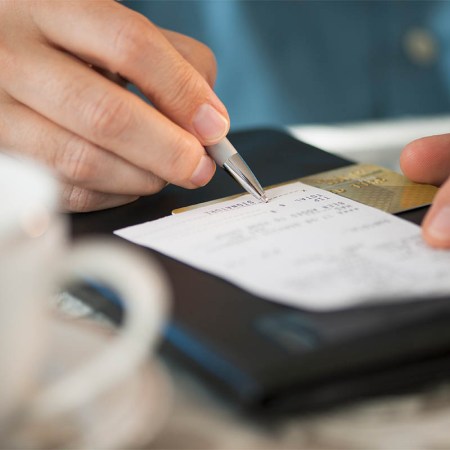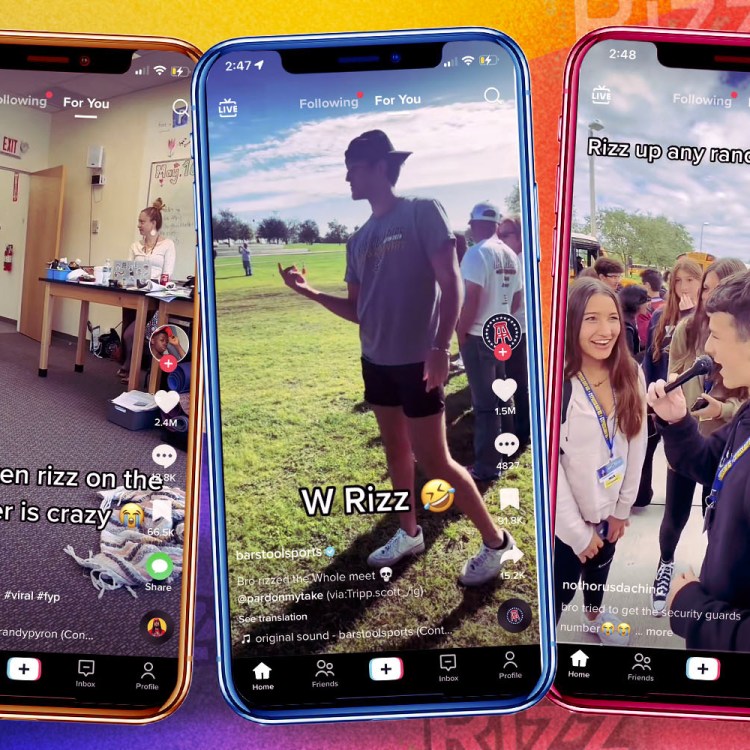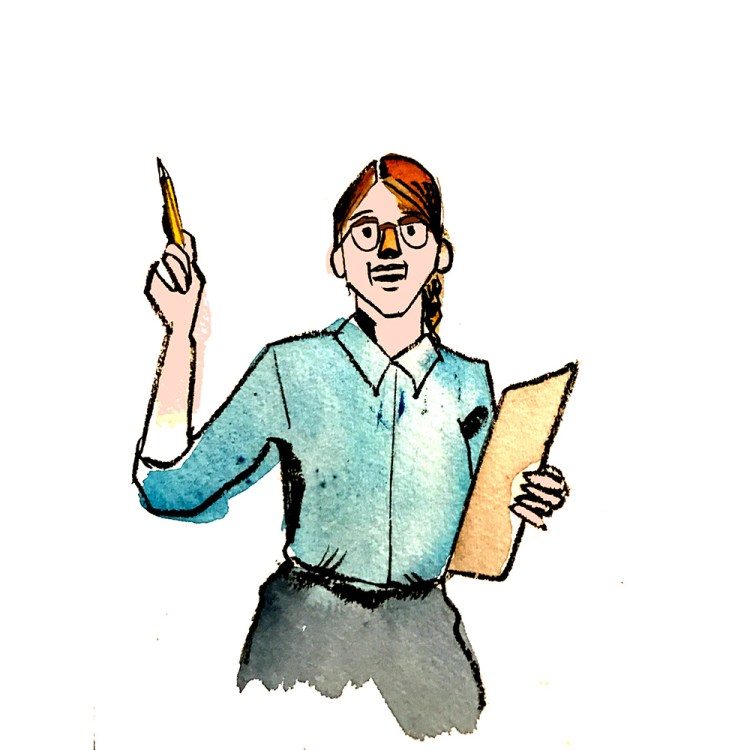If you’ve ever been to a Passover seder, you know it’s tradition to ask, “Why is this night different from all other nights?” But tomorrow night, when Jewish people across the world observe the holiday, it’ll be really different.
As we all find ourselves stuck in coronavirus lockdown, trying to gather with friends and family, celebrating spring holidays — like Passover or Easter or even Mother’s Day, depending on how long the virus keeps us sheltered in place — has presented challenges. Do we skip the holidays entirely and just wait for next year, or try to forge ahead as best we can? Do we cook brisket or ham for one or two people? Is there a way to get creative hiding the afikoman? Where will I get my yearly Peeps fix from? How do we see the people we love?
For many Jews looking to celebrate Passover in isolation, the answer has been to host digital seders, using 21st century technology to participate in the ancient holiday. Seder2020, a site built by OneTable, has offered a platform for those looking to host or attend a digital seder this year, providing resources like PDFs of the Haggadah, recipes, instructions on how to lead a virtual seder and guidelines on how to navigate various video-chatting platforms.
“On a typical week, we are helping millennials across the country get together for a Shabbat dinner on Friday night — typically people who otherwise wouldn’t be doing Shabbat, who don’t have an existing Friday night dinner practice and are either have grown farther away from Judaism or investigating it for themselves or looking for community, any of those reasons,” OneTable’s director of strategy and communications Al Rosenberg tells InsideHook. “When shelter in place started, we had to really pivot very quickly into a virtual context rather than an in-person context, and we had a full team meeting and decided, what did we need to do? What resources do we need to create to make that possible for people so that those communities could thrive online the way that they had in person. While that was all going on, we looked at a calendar and realize that Passover is just around the corner, which was alarming because time just seems to no longer make any sense.”
While OneTable typically is aimed at people in their twenties and thirties, the realization that many older people would be scrambling this year to figure out how to celebrate Passover online inspired Rosenberg and his team to expand beyond their target demographic with Seder2020.
“We looked at the technology we had and realized that we could work with our tech team to duplicate it and sort of simplify pieces of it to make it more available for just a wider spectrum of people around the world to be able to host their dinners, find each other,” he says. “And that was really the initial goal was all of us worrying about our own families who otherwise wouldn’t be gathering and trying to figure out how we can reinvest in the technology we already owned to make it more accessible for everyone else.”
Rosenberg estimates that there are about 200 digital seders scheduled on Seder2020 right now, and he notes that in addition to those the site has seen approximately 20,000 unique visitors looking for resources. Users who set up their digital seder via Seder2020 have the option to make it private and accessible only to those with an invite or open to anyone looking to join.
“I would say about half of them are open to new community members,” Rosenberg says. “There’s a lot of private family ones, and then there are all a lot of synagogues and Jewish communities that are posting on there that are open to the wider Jewish network, which is really interesting. And there’s a few interfaith dinners on there open to the larger community, which is really beautiful … There are also a lot of people who are like, ‘well I’m just doing it with my immediate family, so I don’t need to post it on there.’ But they’re coming onto the site to request the digital Haggadahs that we have up there and some of the other Passover resources that we’ve compiled. We’ve received a ton of requests, thousands of requests for the resources and connection to more resources. We’re sort of sorting through all of those on a daily basis right now.”
Of course, there are certain interactive portions of a traditional seder that may need to be modified this year since people won’t physically be celebrating together. But Rosenberg and Seder2020 have some creative suggestions on how to adapt (as the site assures its visitors, “Jews have been adapting to changing circumstances for over 5000 years. You can do this”).
“There are a couple of points during the seder that really lend themselves to theatrics,” Rosenberg explains. “For the afikoman, we’ve come up with some ideas and we’ve also just heard from our hosts and guests tons of interesting ideas. Someone put together a crossword puzzle. They made their own crossword puzzle with the word ‘afikoman’ hidden in it. We’ve been suggesting that you assign the role of afikoman and then have that person make horrible matzah jokes all night, but hopefully subtly. And then at the end of night you can guess who it was.”
City Winery has been incorporating theatrics into its annual Downtown Seder event for decades now, inviting performers like Lou Reed and Harvey Fierstein to participate in what the New York Times dubbed “a cross between summer camp in the Catskills and a progressive jazz concert” back in 1997.
With everything going on, this year’s all-star event required a little extra creativity from City Winery CEO and founder Michael Dorf (you can read an interview with Dorf about the event here). But the show must go on, and the venue live-streamed it for people to watch from the safety of their homes. Many of the participants addressed or alluded to the pandemic: Lewis Black introduced his segment talking about the bitter herbs by saying, “The herbs can’t be bitter enough for reasons too long for me to go into without a punchline.” Comedian Seth Herzog prefaced his discussion of the ten plagues with “I believe in plagues now. We’re living in one.” Max Weinberg of the E Street Band kicked off his portion by washing his hands and making a social distancing joke. Peter Yarrow, who sang a rousing “Puff the Seder Dragon,” spoke about how “greed, materialism and the decay of our caring about each other” are holding us captive.
Judy Gold delivered a version of “Dayenu” centered around Trump’s coronavirus response. (Sample lines include “if the White House staff had been ordered to work from home and not also mentioned it was the happiest they’d been since January 2016, dayenu” and “if he claimed to be serving as a wartime president and not also claimed to have bone spurs to get out of serving in an actual war, dayenu.”) At 91 years old, Dr. Ruth couldn’t figure out how to film herself for the livestream, but she appeared via Facetime with Dorf to offer some words of encouragement.
You’re bound to run into some technical hiccups of your own when hosting a digital seder, particularly if you’ve invited older relatives who may not be especially tech-savvy, which is why Rosenberg and Seder2020 have a few tips on how to make the most of your digital event.
“I think I’ve learned a lot about what actually works on a virtual context and what doesn’t,” he says. “And it’s just a totally different thing. I’m so used to being able to turn to the person next to me and asking them to do something or involving them in some way and making sure that people who maybe are a little nervous about jumping in feel supported, and online that just feels totally different.”
Rosenberg suggests assigning roles to each guest before the actual seder to keep things organized and avoid making anyone feel uncomfortable or put on the spot. He also recommends putting at least one person in charge of digital support to make sure the stream runs smoothly.
“If you have a really big family seder you’re planning online, I would say multiple people on the tech front would be good because, especially if it’s your first time ever convening online, there’s going to be little hiccups here and there,” he explains.
Ultimately, however, he says the main thing is to accept that this year’s seder will be different than years past.
“I think the biggest thing is that a lot of people just need permission right now to realize that it’s not going to be the perfect Passover seder,” he says. “There are going to be things that come up that you’re going to have to step outside of the experience for a second to fix. No matter the amount of preparation you do, someone’s internet is going to be bad and they’re going to freeze while they’re reading or they’re going to have to rejoin or whatever it is.”
Whether or not it’s perfect, Rosenberg says getting together (digitally, at least) with friends and loved ones and celebrating Passover has provided some much-needed comfort during these scary, uncertain times.
“I was originally planning on not doing anything myself because it just felt really overwhelming,” he says. “I’m on Zoom calls all day long for work, and the idea of getting on another one for Passover really felt too much when I first thought about it. I’m typically the host. The people who only ever go to my seder reached out and were like, ‘Well, what would we do then if you don’t host?’ And then the more I had that conversation with my guests, the more I realize now is a crucial time for holding onto these traditions. There’s so much that feels uncertain and there’s so much that feels like it’s out of our control right now, and being able to say, ‘actually this is a thing that we’re going to do regardless of what else is going on in the world because we do it every year,’ actually feels incredibly grounding now that I’ve personally started planning for it.’”
This article was featured in the InsideHook newsletter. Sign up now.






















